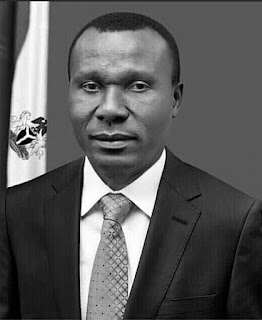Nigeria has started a journey towards the zenith since it moved up from 169th to 145th (24 paces forward) in 2017 World Bank’s Doing Business index. Although, not much of a profound achievement, it is, nevertheless, a critical achievement built on policy reform and the exercise of extant rules to make the business cart move.
In 2016, President Buhari inaugurated the Presidential Enabling Business Environment Council (PEBEC); the Vice President, Prof. Yemi Osinbajo chaired it, Jumoke Oduwole (Senior Special Assistant to the President on Investment, Trade and Industry) headed the Secretariat, and the Federal Ministry of Trade and Investment, led by the quick-witted Okechukwu Enelamah, coordinated it. PEBEC operates by convening the leadership of key MDAs to tackle regulatory impediments to doing business in Nigeria.

The council had to operate on this score because, in the past, red tape and regulatory barriers infringed on the ease of doing business. The existing government institutions lacked the political will to dissolve the barriers that hampered business existence and growth. Not just that, there was no resonance in the funtional components of these institutions to clearly show which agency ought to do what within a stipulated time frame to tackle the deep-rooted challenges head-on. Consequently, businesses suffocated and died, and those that survived barely did so on the fringes of mere existence. It became more profitable for entrepreneurs to, at best engage in the distribution value-chain, and at worst, import goods. While this problem persisted, the swelling needs of the Nigerian commodity market and it attendant supply and demand flux necessitated the practice of distribution and importing. Production/manufacturing to supply the local market and for export was practiced by few. The consumption of imported goods by the 170 million inhabitants of Nigeria assumed astronomical dimensions and devastated the national economy. This practice helped to deepen the abyss into which the economy dived into. While this happened, most of us enjoyed, not aware of the dire consequences of the feast.
President Buhari and his economic team were sure that they needed to take breath-taking sensitive decisions to do things differently; and I'm sure, twice sure that hardship will set in. But they braced up on the needed to take decisions that will place the national economy on the path of veritable economic growth.
There were no jobs because jobs are created ONLY when good and services are produced. Where there is no such production there MUST be a crunch. There will be no jobs! Hence, what Nigeria needed is an industrial revolution through the manufacturing and food production (agriculture) sectors; such will usher in a variety of technology application for the production of goods and services. But for goods and services to be produced, the friction that hampers business growth must be removed. This is what was initiated on Thursday, 18th day of May, 2017 when Prof. Osinbajo, then the Acting President, signed the Executive Order (EO1) on transparency and improving the business environment in Nigeria. The EO1contains far-reaching measures with direct benefits for Nigerian businesses.
Why did Nigeria make 24 steps upwards on the global index ranking on the ease-of-doing business, barely 6 months to the signing of EO1? The answer is simple; the impediments are gradually being removed, layer by layer: transparency, default approvals, one government, ports operations and entry experience of visitors have become underlying principles upon which Nigerian businesses are handled.
Prof. Osinbajo has said "Anytime we create obstacles for doing business, we attack the Nigerian economy, we attack our prosperity as a nation, we also attack the future".
The interpretation of this statement is palpable and clear.


Comments
Post a Comment